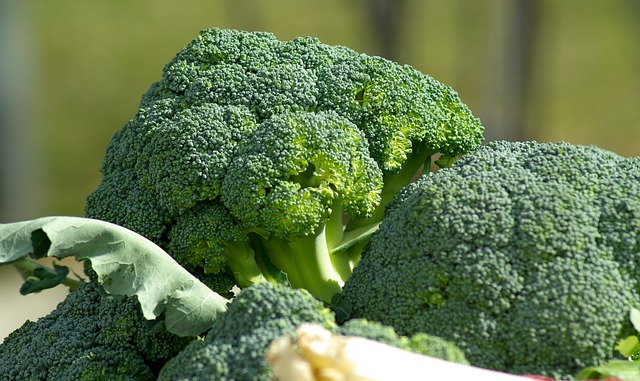Broccoli is a powerhouse of nutrition, widely celebrated for its numerous health benefits and versatile culinary uses. Here, we’ll explore everything you need to know about broccoli, from its nutritional profile to its role in various diets and easy ways to incorporate it into meals.
- Introduction to Broccoli
- Nutritional Profile of Broccoli
- Health Benefits of Broccoli
- Cancer Prevention
- Heart Health
- Bone Health
- Immune Support
- Broccoli in Weight Management and Diets
- How to Select and Store Broccoli
- Popular Ways to Cook and Enjoy Broccoli
- Easy Broccoli Recipes
1. Introduction to Broccoli
Broccoli is a green vegetable that belongs to the cruciferous family, which includes kale, Brussels sprouts, and cabbage. Known for its tree-like shape, broccoli has become a staple in diets worldwide due to its impressive health benefits.
2. Nutritional Profile of Broccoli
Broccoli is a low-calorie vegetable packed with essential vitamins, minerals, fiber and antioxidants. Key nutrients found in broccoli include:
- Vitamin C: Powerful antioxidant that supports immune health.
- Vitamin K: Crucial for bone health and blood clotting.
- Folate: Important for cell function and tissue growth.
- Fiber: Promotes digestion and helps in weight management.
- Potassium: Helps control blood pressure and muscle function.
3. Health Benefits of Broccoli
Cancer Prevention
Broccoli contains sulforaphane, a compound with strong anti-cancer properties. Studies suggest that sulforaphane helps reduce the risk of several cancers, including breast, prostate and colon cancers.
Heart Health
The antioxidants in broccoli can reduce inflammation, protect blood vessels, and lower LDL cholesterol, promoting overall cardiovascular health.
Bone Health
Broccoli is rich in vitamin K and calcium, essential for bone density and strength, making it beneficial for preventing osteoporosis and bone loss.
Immune Support
High in vitamins C and E, broccoli boosts the immune system and helps the body fight infections and chronic illnesses.
4. Broccoli in Weight Management and Diets
Broccoli is low in calories but high in fiber, making it ideal for weight loss and diet plans. It provides a feeling of fullness, reducing cravings and promoting a healthy gut. Additionally, it’s a popular choice in low-carb, keto, and vegan diets.
5. How to Select and Store Broccoli
When buying broccoli, look for bright green heads with compact florets. Avoid broccoli with yellowing spots or wilted stems. Store broccoli in the fridge in a plastic bag to keep it fresh for up to a week.
6. Popular Ways to Cook and Enjoy Broccoli
Broccoli can be prepared in numerous ways, from steaming and boiling to roasting and stir-frying. Each cooking method brings out different flavors and textures, with steaming being the best to retain its nutrients.
7. Easy Broccoli Recipes
Here are some quick and easy recipes to include broccoli in your daily meals:
- Steamed Broccoli with Garlic and Lemon: A simple, nutrient-packed side dish.
- Broccoli Soup: A creamy, comforting dish, perfect for colder months.
- Broccoli Stir-fry with Tofu: A balanced meal with protein and greens.
Conclusion
Broccoli is truly a nutritional powerhouse, offering countless health benefits. By adding broccoli to your diet, you’re investing in long-term wellness. Whether you’re looking to improve heart health, support bone strength, or simply enjoy a nutritious, low-calorie vegetable, broccoli is a great choice.

